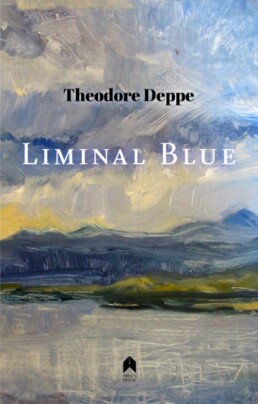To journey into Liminal Blue is to accompany a man hungry for what he does not receive. But he receives what he never imagined, in places he never imagined he would be. With enormous artistic generosity, he allows us to be fellow travellers, allows us, if we are able, to let the mysteries, miracles, synchronicities and sorrows break on us. Like Tomas Tranströmer he gives us a glimmer of the knowledge that poetry can come from anywhere, any time, anybody, in any tongue … and we just have to listen for it. And Ted Deppe is worth listening to again and again.
– Kate Newmann
Liminal Blue, Theodore Deppe’s sixth collection, comprises twelve shorter poems, a lyric essay on memory, train horns and loss, and a book-length poem that begins with a swim in the North Atlantic after his father’s death. ‘Little Colloquium by the Sea’ is a wide-ranging meditation on the thresholds between land and sea, sleep and waking and the living and the dead. Set mostly on the coast of north Connemara, ‘Little Colloquium’ begins as an elegy for his parents and ends up celebrating the lives of many others, including Philip Levine, Seamus Heaney, Elizabeth Bishop, Dermot Healy and W.G. Sebald.
Praise for Ted Deppe:
Deppe’s scrupulous attention is tender, uncompromising, and full of a rare quality of moral weight.
– Mark Doty
Ted Deppe’s poems, which a reader might admire for their narrative gift and the beauty and force of their language alone, also look unflinchingly into the heart of human suffering while equally acknowledging the joy and peace that are possible in our lives. These poems, which chart Deppe’s peripatetic life in Ireland and the United States, trade the lack of a permanent home for an at-homeness in the moment.
– Robert Cording
In language lit with the brilliance of icons, Deppe illuminates the lives of those we might disregard, as well as the gentle and damaged terrain of family history.
– Lynda Hull
Deppe mediates his subjects with a Chekhovian eye and heart in these extraordinary poems.
– Stephen Dunn

